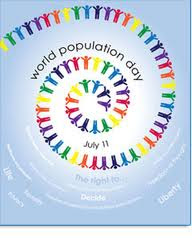 |
| (Google Image) |
By
Diane Forrest
I love the movie “It's A Wonderful Life”. In one scene, George and his brother Harry
are upstairs making a bunch of racket, and as their mother is trying to get the
quiet, their maid, Annie makes the statement "That's why all children
should be girls." Mrs. Bailey
answers, "well if they were all
girls…oh never mind." What she
meant to say was if all children were girls, the race would die out.
I have read that in China, they limit the number of
children in each household to one child.
The families prefer a male child to preserve the family name and heritage.
The females are put up for adoption, or worse.
With this type of control on the population, soon there won't be any
children as Mrs. Baily implied. The
population of the world requires responsibility among the inhabitants. Points
of concern include space, food, and health care.
Every night late at night there are commercials about children in under developed countries who are starving. Asking to send money to buy them food and clothes and shelter. There is a saying, "Give a man a fish and he will eat for a day, Teach a man to fish, and he will never be hungry again." Or either, teach a man to fish and he will sit in a boat and drink beer all day. I believe that in impoverished areas, not only is it important to lend a helping hand, but also educate them to become self-sufficient. This should extend not only to food, but also in other areas. Education about reproduction should be top on the list when talking about the world population. Birth controls methods should be taught and encouraged. Living in an educated society, we assume that everyone has the same access to information that we are fortunate to have. This is not the case in many areas.
 |
| (Google Image) |
I remember the movie Klan of the Cave Bear, and Blue
Lagoon, with Brooke Shields, where they had no idea how they became pregnant,
or that they ever were pregnant. They
assumed they were eating too much and getting fat.
World Population Day seeks to raise awareness of global
population issues. The event was established by the Governing Council of the
United Nations Development Programme in 1989. This is an opportunity to celebrate
our common humanity and our diversity. It is also a reminder of our shared
responsibility to care for each other and our planet.
 |
| (Google Image) |
Reproductive health is at the very heart of development
and crucial to delivering the UNFPA vision — a world where every pregnancy is
wanted, every childbirth is safe, and every young person’s potential is
fulfilled. On 11 July – World Population
Day – many activities and campaigns will call attention to the essential part
that reproductive health plays in creating a just and equitable world. Help us
generate greater commitment to the idea that everyone has a right to
reproductive health.
For more information
about World Population Day and for ways you can help in this area visit this
site http://www.unfpa.org/public/




No comments:
Post a Comment